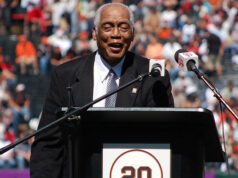TO: questions@psychedonline.org
FROM: XXXXXX@aol.com
SUBJECT: Rubber Legs
DATE: Fri, 18 Apr 2003 07:36:51
After reading your interview with Jeff Torborg, I was wondering … My coach is a very smart and nice man who never gets upset at anything any of our players do – like Torborg seems to be. We have had a losing record for the past two years. I am the star pitcher on the varsity team. It is frustrating. Some of my teammates need to be taken to task. As I was saying, I was wondering whether a manager needs to have a tougher side.
TO: XXXXXX@aol.com
FROM: questions@psychedonline.org
SUBJECT: RE: Managers
DATE: Mon, 21 Apr 2003 22:47 EST
ResponseIt is an interesting question. You must understand that I can only assume that your manager is as you have described him. I recall an episode of Star Trek where Captain Kirk is separated into two parts. One aspect is the kind, empathetic leader who is very thoughtful and appreciative of his staff. He is also very indecisive. He believes that kindness will conquer all troubles. The other part is very aggressive, insensitive, tyrannical, and tough. The theme of this episode was to get the two parts together in the same body. In fact, leaders need to be strong and show the way as well as kind and understand. One of the criticisms of Torborg as a manager was that he tends to over think, question and get too personally involved. Sometimes a team needs to be grabbed by the throat and led to the promised land. It’s very hard to find a manager who has both sides in balance and harmony. Managers have their strengths and weaknesses. Your manager seems to have too much of a good heart and not enough of no nonsense leader.
Paul Schienberg, Ph.D.













